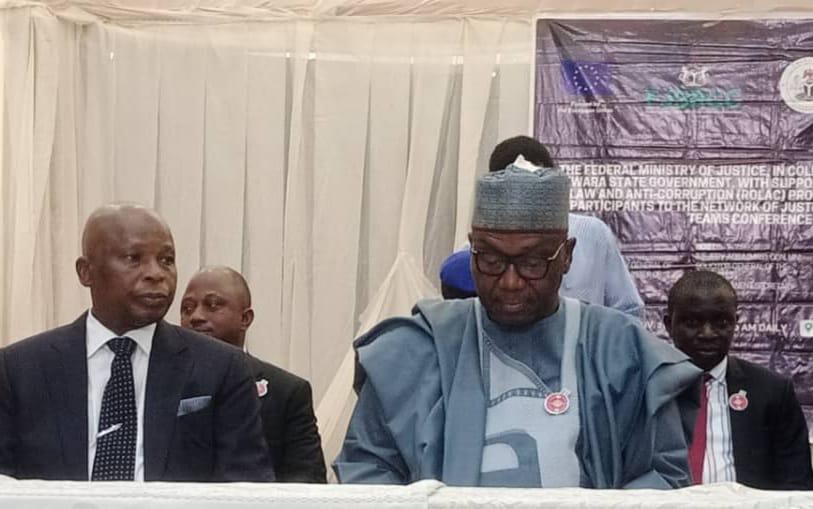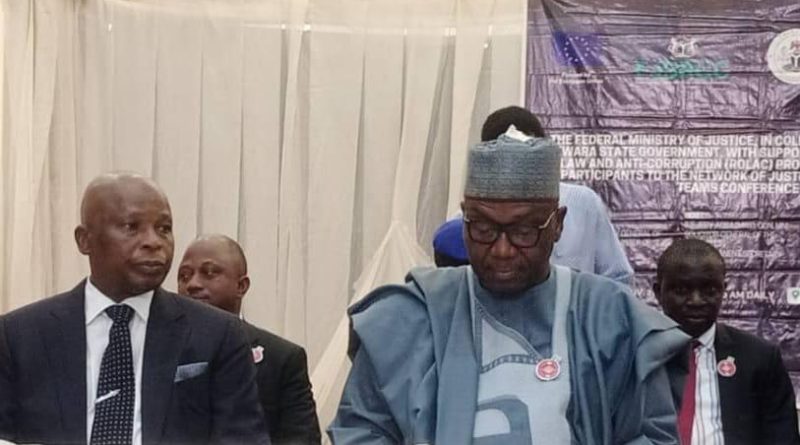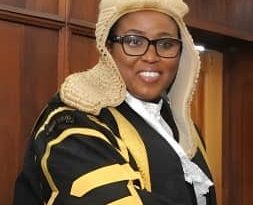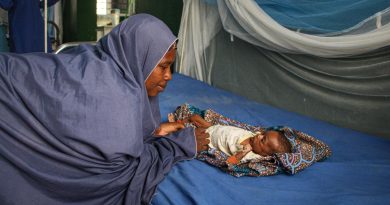EU-RoLAC, State Judiciaries, Others Identify Poor Inter-Agency Cooperation As Reasons For Slow Justice Delivery
By Bukar BOLORI
A gathering of more than 25 state Judiciaries and key stakeholders in the field convened in Ilorin at the weekend, pinpointing inadequate interagency collaboration within the nation’s judicial framework as the primary cause for the sluggish pace of justice administration in the country.

This was the highlight of the Network of Justice Reforms Teams (JTRTs) Conference organised by the EU-funded Rule of Law and Anti-Corruption (RoLAC II) Programme of International IDEA in partnership with the Federal Ministry of Justice (FMoJ).
The Conference noted that the deficiency of modern technologies has been recognized as a significant contributing factor to the substandard execution of justice in Nigerian courts and law enforcement procedures, as indicated by reports emerging from the conclusion of the Network of Justice Reforms Teams (JTRTs) retreat in Ilorin.
The JTRTs conference, spanning three days, united various criminal justice institutions to deliberate on justice sector reform, advocate for reform models, and establish new objectives for enhancing justice delivery in Nigeria.
Representatives from the Administration of Criminal Justice Monitoring Committees (ACJMCs) were also in attendance.
Over time, RoLAC and the FmoJ have hosted JRTs with the principal objective of fostering coordination in justice delivery.
Advocates of the retreat assert that these network meetings provide platforms for exchanging experiences and knowledge-sharing, leading to a wide array of reforms, including the adoption of the Administration of Criminal Justice Laws by all 36 states in the federation.
Speaking at the end of the Conference on Thursday, Dr Oluwatoyin Badejogbin, Project Manager Component 1 – Criminal Justice Reform of the RoLAC II Programme, International IDEA, spoke on the need to speed up justice delivery and decongest the correctional facilities.
Badejogbin said: “It is evident that congestion in correctional facilities and delays in criminal case prosecutions, as well as civil justice proceedings, stem from the lack of coordination within the criminal justice system.
“When crucial agencies fail to communicate effectively with one another, critical aspects are overlooked. One agency expects the other to fulfil certain responsibilities, while the other anticipates reciprocal actions, resulting in a breakdown of processes.
“For instance, when the police and the Department of Public Prosecution fail to synchronize their efforts, criminal case files may not be submitted, or they are not returned to the police with the essential legal guidance. Consequently, suspects languish in custody, with no clarity on the status of their cases, leading to prolonged detention in correctional facilities.
“However, when there is seamless cooperation between these agencies, such gaps are mitigated,” he elucidated.
The RoLAC II coordinator highlighted that the primary objective of the retreat was to identify existing gaps and address them effectively by the conclusion of the justice reform team session.
“We anticipate that critical actions will be formulated and implemented, particularly at the state level, following this justice reform team gathering,” he remarked.
Further elaborating on the retreat, Prof. Mohammed Tabiu, a facilitator with RoLAC II, emphasized the added advantage of inclusivity, as the retreat engaged not only stakeholders from the Judiciary but also various other entities in a coordinated manner.
“The emphasis on coordination, harmony, and collaboration rendered this retreat distinct.
“Throughout the three-day event, a diverse range of initiatives across states aimed at enhancing the administration of justice, particularly in criminal justice, were scrutinized.
“RoLAC has been striving to harmonize these developments among states, ensuring adequate support for optimal outcomes.
“The dissemination of lessons learned to other stakeholders will facilitate the widespread benefits of these endeavours across the country,” the professor said.
Earlier on Tuesday Minister of Justice and Attorney General of Federation, AFG, and the Kwara State governor, Mall. Abdulrahman Abdulrazaq emphasized that essential reforms are integral to President Bola Tinubu’s administration’s strategic agenda.
Fagbemi articulated: “As you are cognizant, the reform of the justice sector occupies a central position in this administration’s strategic agenda.
“A key facet of our Renewed Hope Agenda is to drive judicial reforms to foster sustainable socio-economic growth and investment, underpinned by the rule of law, and to address the impediments hindering the dispensation of justice in our nation.”




